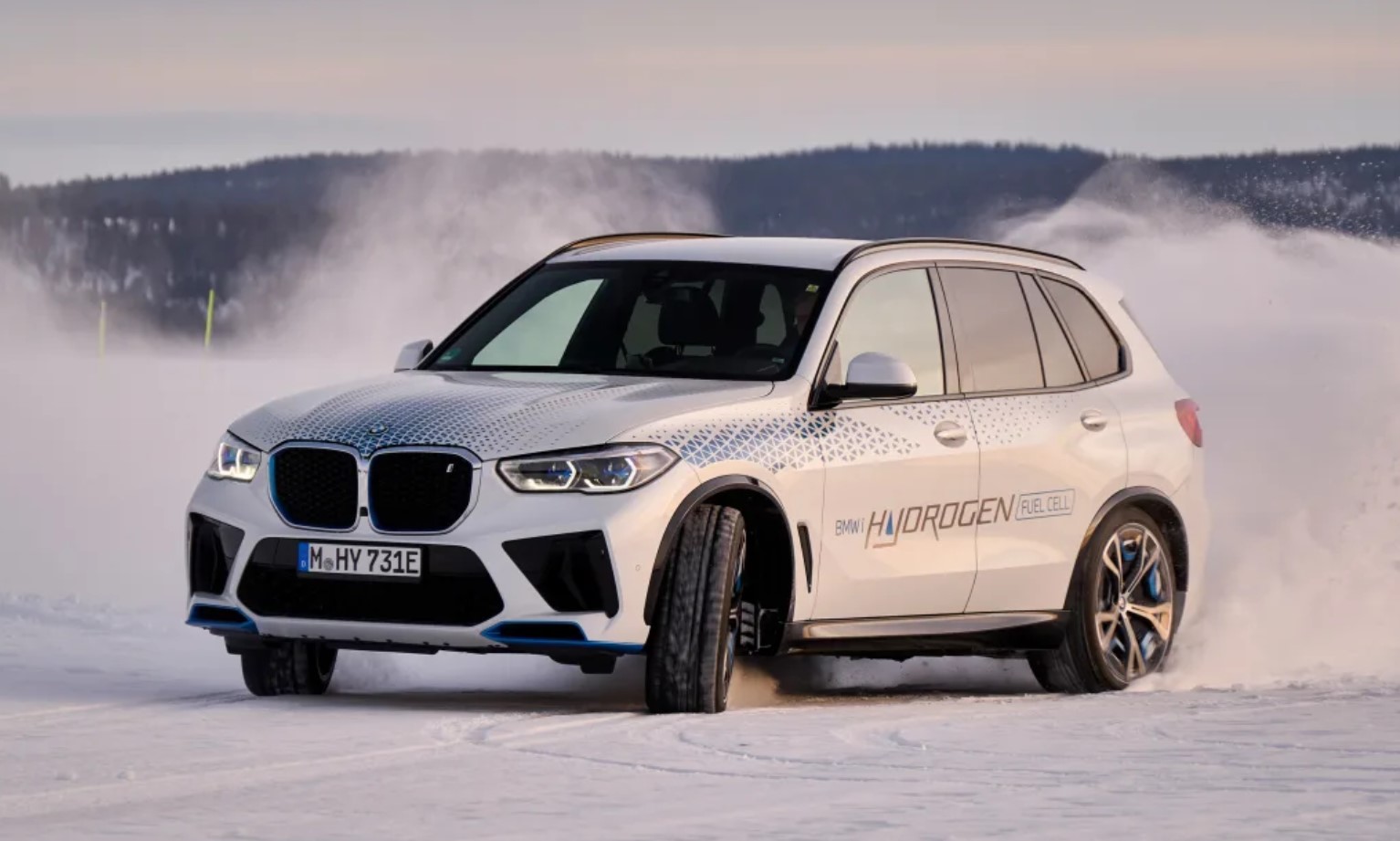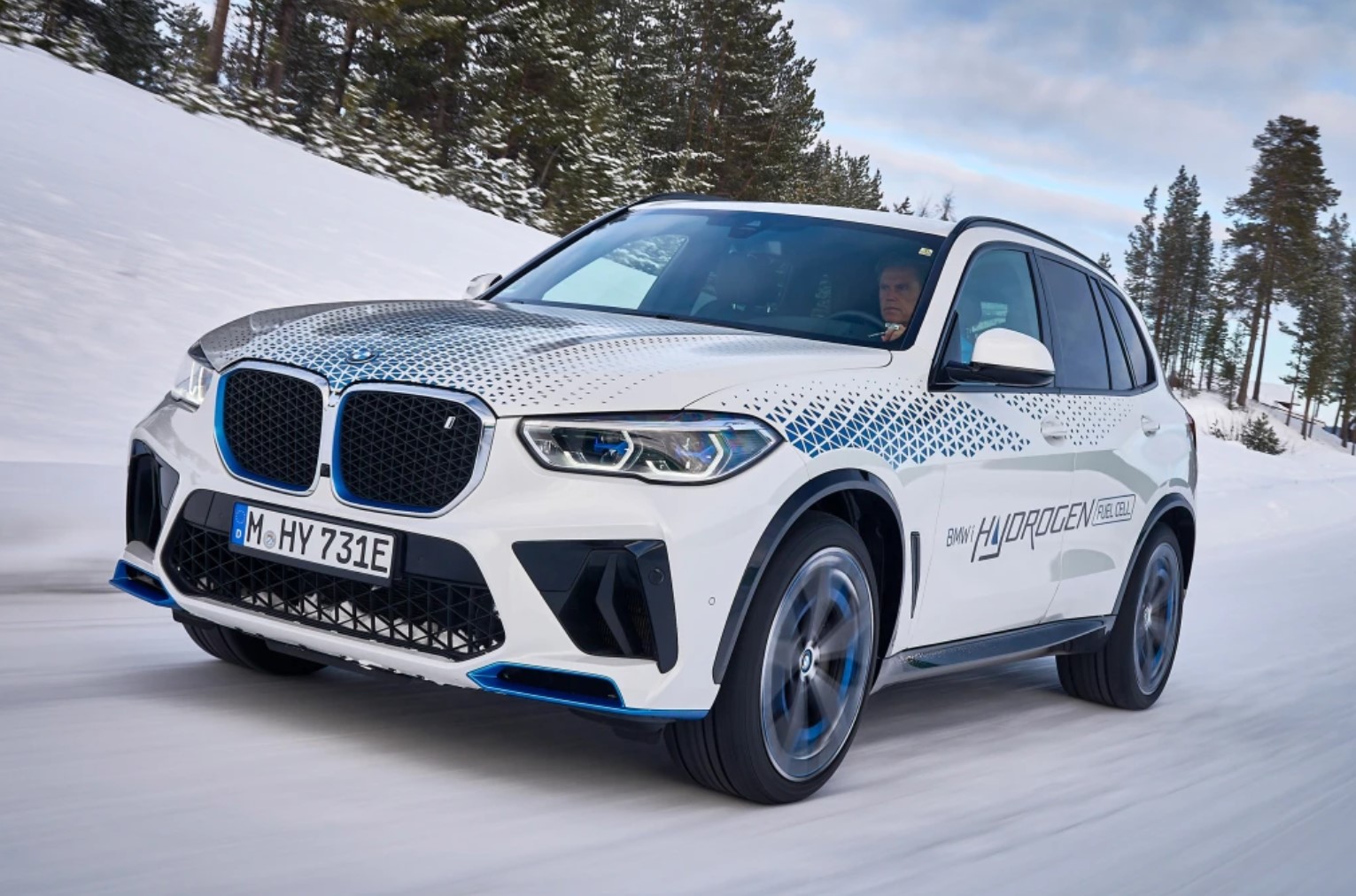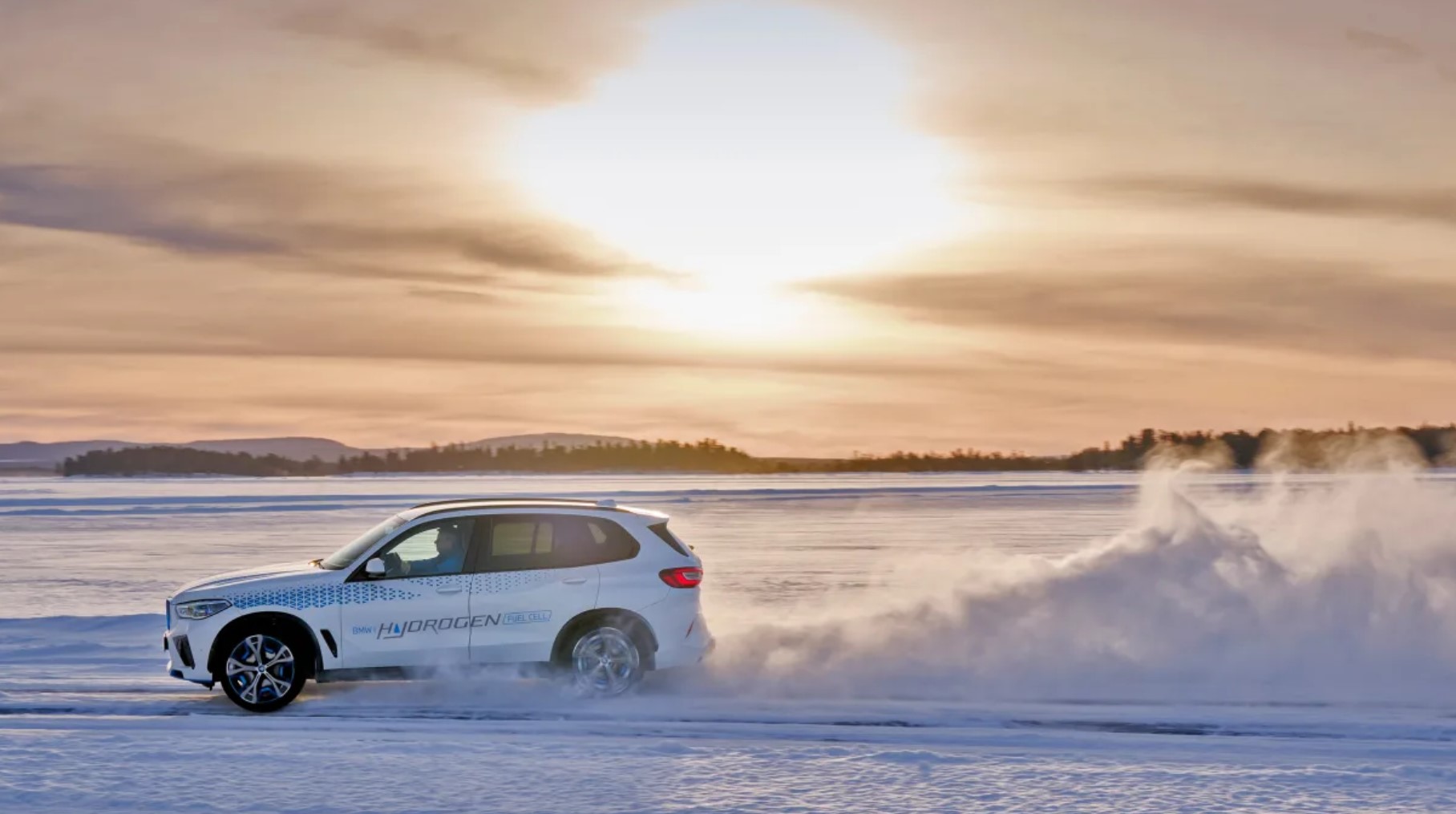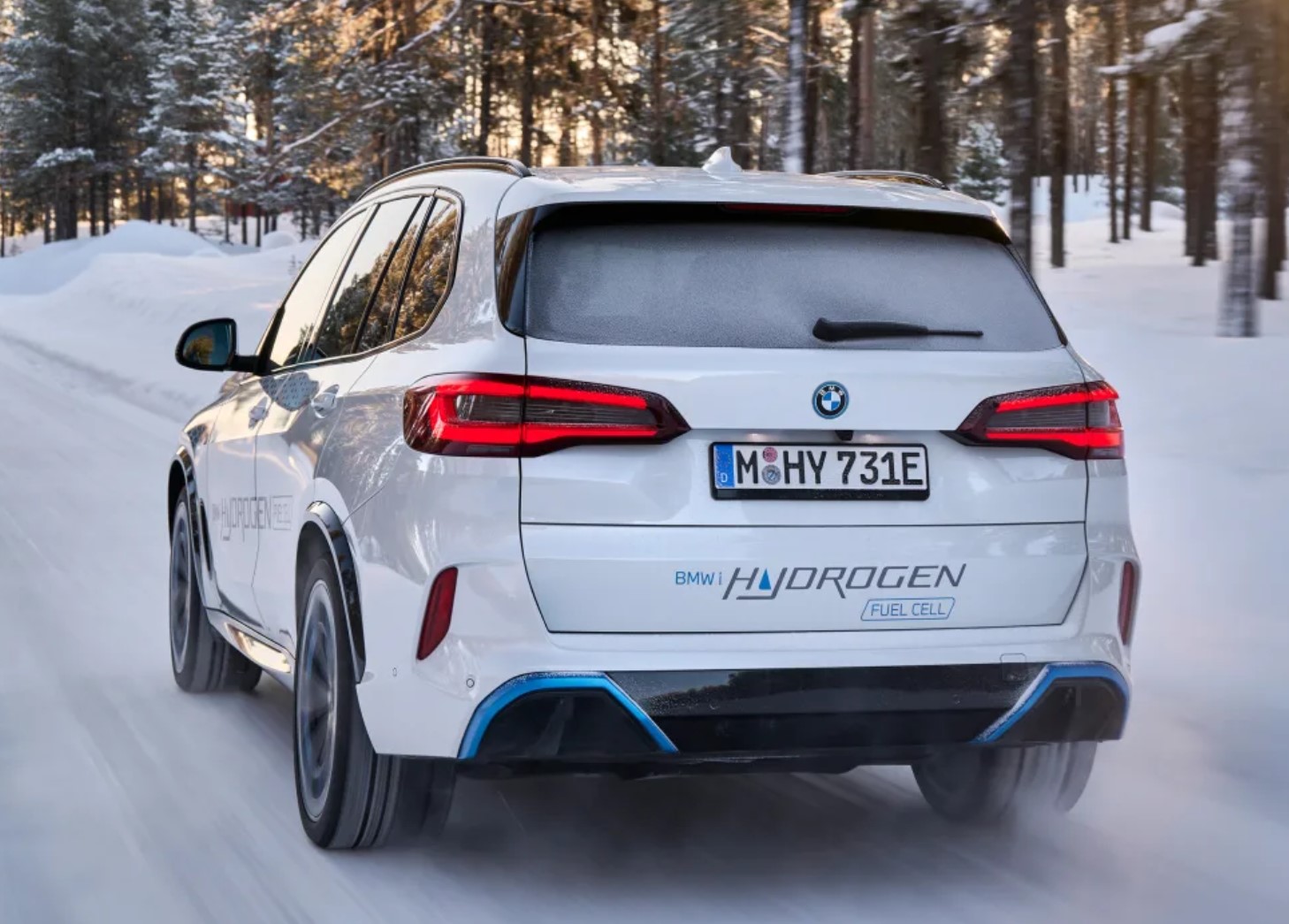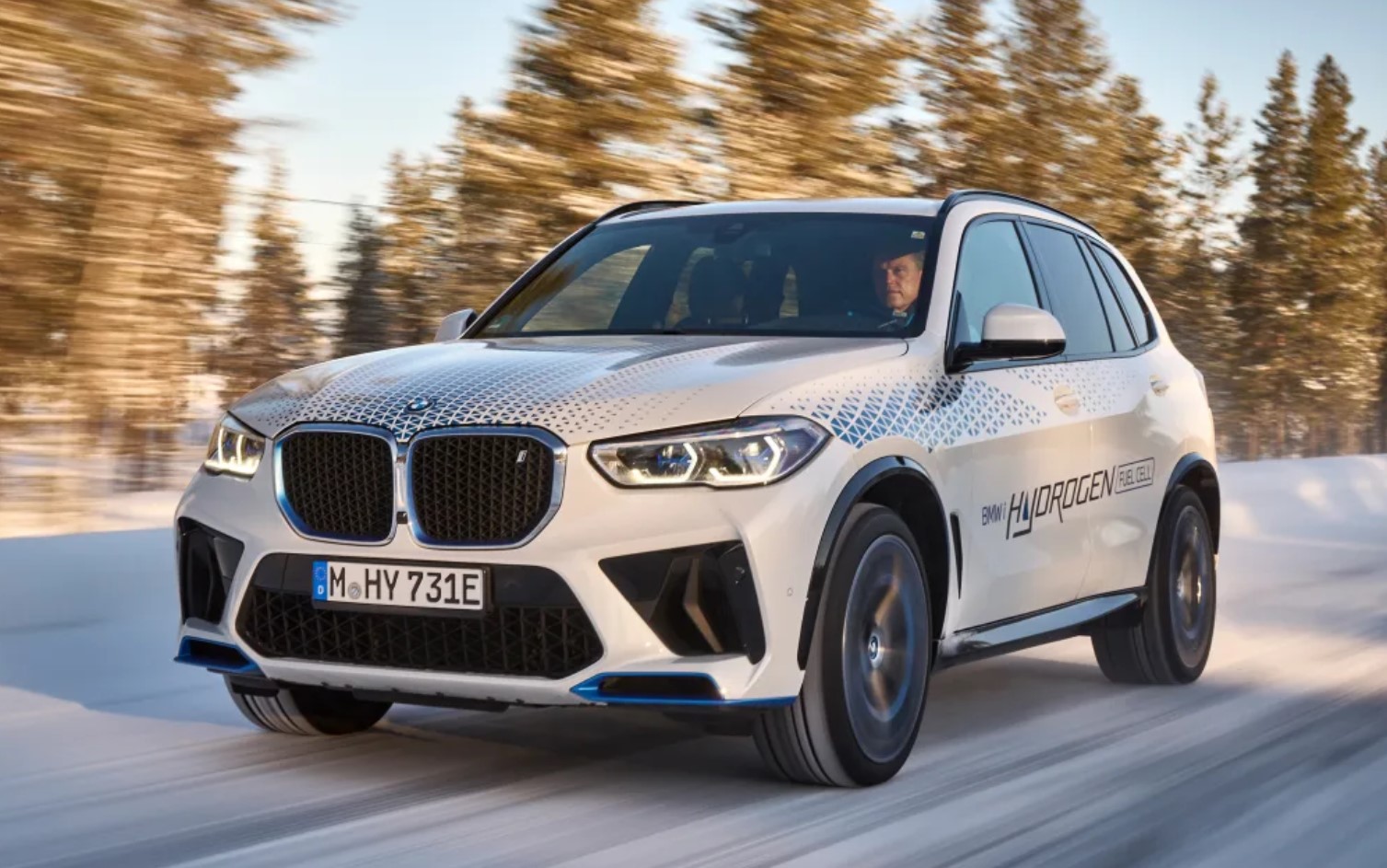The hydrogen fuel-cell powered BMW iX5 SUV has reached the latter stages of its development cycle before it enters a short production run this year.
Final winter testing has commenced for BMW’s new hydrogen fuel-cell powered iX5 Hydrogen, before a small number of units go into production later this year. The zero-emission SUV uses an onboard fuel-cell to convert hydrogen to electric power to drive two e-motors, and BMW is testing its cold-weather performance near the Arctic Circle.
According to the brand, the iX5 has been able to provide maximum performance despite temperatures dropping as low as -20°C, and with the car’s two 700-bar hydrogen tanks taking less than minutes to refuel, offers the convenience of a combustion-engined model.
BMW is also tweaking the iX5’s steering, suspension and regenerative braking system as part of this development phase, with the hydrogen fuel cell solution cutting weight compared to a battery powered vehicle. Another advantage over conventional electric cars is that it doesn’t suffer from a shortened driving range in cold conditions.
The iX5 Hydrogen is based on the iNext Hydrogen prototype revealed in 2019 and following the planned short production run BMW could look to put the car into larger scale production depending on market conditions and infrastructure support. BMW even says that, if the current infrastructure issues are remedied, it could introduce hydrogen fuel cell technology on other vehicles in its line-up, such as the iX3, iX and i4.
Frank Weber, BMW’s board member for development said: “The winter testing under extreme conditions clearly shows that the BMW iX5 Hydrogen can also deliver full performance in temperatures of -20°C and therefore represents a viable alternative to a vehicle powered by a battery-electric drive system”.
The iX5 comes with cosmetic alterations that mark it out as one of the company’s eco models – some of which have been 3D-printed. It adopts BMW’s trademark i-Division styling changes and blue accents plus a unique blue-tinted radiator grille, a set of lightweight 22-inch alloy wheels and a revised rear diffuser with blanked-off exhaust outlets and blue trim.
It’s powered by a pair of electric motors (one at each axle), which have a combined output of 295kW. They’re the company’s fifth-generation eDrive motors, which also feature on the i4 and iX.
However, instead of pulling stored electrical energy from a battery pack like a conventional electric car, the iX5 generates its own electricity through a chemical reaction between stored hydrogen, and oxygen from the air, via a fuel cell capable of generating up to 125kW. Waste heat from the system is used to warm up the cabin.
The fuel cell, developed in partnership with Toyota, is supplied by two 700-bar storage tanks occupying the space used by the gearbox and driveshaft in the combustion-engined X5. Together, the tanks can hold six kilogrammes of hydrogen.
BMW says this guarantees a long range regardless of the prevailing weather, unlike a traditional battery electric vehicle, whose usable range generally decreases in colder conditions. Refuelling takes a matter of minutes, too, which is a huge saving over the charge-times of current conventional electric vehicles.
To further boost the iX5 Hydrogen’s eco-points, BMW has fitted it with aerodynamically efficient alloy wheels wrapped in sustainable tyres. They’re made from natural rubber and rayon, extracted in compliance with the Forest Stewardship Council’s (FSC) standards.
Other claimed advantages a hydrogen-electric vehicle has over a traditional EV include suitability for towing and no compromises on passenger comfort, due to the lack of a heavy lithium-ion battery pack and the stiffer suspension required to support it.
Yousuf Ashraf




